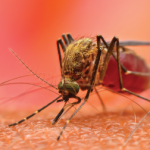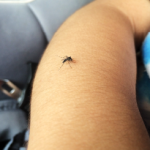“After 20 months, a quarter of the participants had persistent joint pain,” Dr. Chang says. “The high frequency of the disease highlights the need for prevention and treatment methods.”
Possible Vaccinations & Treatments
Currently, no vaccine is available to prevent chikungunya, and those traveling to countries where CHIKV has been found are encouraged to use mosquito repellant.
Valneva, a French biotech company, and Maryland-based Emergent BioSolutions have both developed CHIKV vaccines that are showing potential in clinical studies. Emergent announced it was moving forward with phase 3 of its study in early 2020.4
Although physicians in Brazil and other countries, commonly treat patients with chikungunya, it’s not as common in the U.S.
“Physicians aren’t used to diagnosing chikungunya here in the U.S., and there’s no standard, evidence-based treatment,” Dr. Chang says. “As a result, [chikungunya] is treated symptomatically, with doctors recommending rest, fluids and medicines to relieve fever and aching, such as ibuprofen.”
For patients who progress from the acute to the chronic stage of the disease and experience joint pain, Dr. Chang says methotrexate, also used for patients with rheumatoid arthritis (RA), has been shown to be an effective treatment. Findings from her study showed the most common type of pain reported was soreness with periods of relief and subsequent recurrence. More than 75% of patients in the cohort reported stiffness after immobility, while 39% experienced morning stiffness.
“Although the number of available studies on methotrexate usage in patients with [chikungunya] is limited, the findings do indicate sufficient efficacy to justify using the medication,” Dr. Chang says. “We’re hoping to design a clinical trial that would examine the effectiveness of methotrexate on a larger cohort of patients.”
In countries where access to healthcare posed an obstacle, Dr. Chang says some patients have been prescribed acetaminophen when methotrexate wasn’t available.
A blood test is the only way for physicians to confirm chikungunya, which can initially be confused with other, more familiar diseases, such as dengue, influenza or yellow fever.
“Serological tests, such as ELISA [enzyme-linked immunosorbent assays], may confirm the presence of IgG anti-CHIKV antibodies,” Dr. Chang says. “IgM antibodies are usually highest in the first three to five weeks after the onset of illness.”
With cities across the country experiencing warmer and more humid temperatures, Dr. Chang believes there will continue to be an increase in the number of patients with chikungunya.
“With warmer climates, we’ve seen the distribution of the Aedes mosquito, responsible for transmitting CHIKV move north,” Dr. Chang says. “We have the mosquito that spreads CHIKV in Washington, D.C., and CHIKV should definitely be on physicians’ radar if a patient has fever, fatigue and joint pain, especially if they have recently traveled abroad.”

